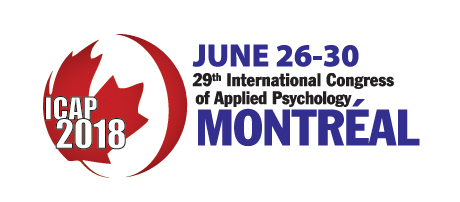2018 Pre-Congress Workshop 3: A Deeper Look into Programme Evaluation and Quality Improvement: Why Programme Evaluation and Quality Improvement Matter to the Vitality and Success of your Programmes and Internships
Jun 25, 2018 08:30AM
Palais des congrès de Montréal

| Presented by: | Susan Farrell, Ian R. Nicholson, Ada Sinacore, Stewart Madon |
| Sponsored by: | The Canadian Council of Professional Psychology Programs (CCPPP) |
| Continuing Education Credits: | 3.25 |
| Notes: |
Continental breakfast and lunch will be provided by the CCPPP. |
| Cost: |
CPA/IAAP Members: $195.00+ GST + QST Non-Members: $275.00 + GST + QST
Click here to download the country list |
| Duration: | Half Day (8:30 – 13:00) followed by CCPPP Annual General Meeting |
| Target Audience: | Directors of training as well as other psychologists involved in programme evaluation. Students are welcome to attend. |
| Skill/Difficulty Level: | Intermediate Level |
|
Workshop Description: This half-day workshop is focused on adaptation to the ever changing landscape of programme viability in a fiscally tight and competitive climate. Accountability, and thereby success, requires consideration of three key areas: (1) Demonstration of meaningful programme outcomes, (2) Awareness of success by all levels of leadership and (3) Training the next generation of programme evaluation and quality improvement leaders from our students and interns. Our current Canadian Psychological Association Standards address the requirement of programme evaluation but do not fully address how to teach the strategies, use the data to advocate and create climates of ongoing evaluation and improvement. This presentation will focus on helping training directors from both doctoral and internship programmes focus on refining their programme evaluation and quality improvement to lead to successful advocacy. Specific topics will include: 1) a review of relevant accreditation standards, 2) current best practices in PE & QI, 3) practical strategies on how to turn your programme’s PE & QI process into a living, breathing document that meets your needs as well as accreditation standards, and 4) how to use the data from your PE & QI process to advocate for your programme as well as share successes and learned lessons with other programmes. Topics will be addressed in the context of large and small group discussions and case presentations. In the first part of the workshop, current accreditation standards as well as best practices in Programme Evaluation and Quality Improvement will be reviewed. In the second part of the workshop, practical strategies for measuring programme success and, more importantly, examples of how to use your PE and QI outcomes to advocate for the viability and necessity of your programme will be discussed. We will engage in large group, small group, and personal reflection as learning strategies. |
|
|
Learning Outcomes:
|
|
